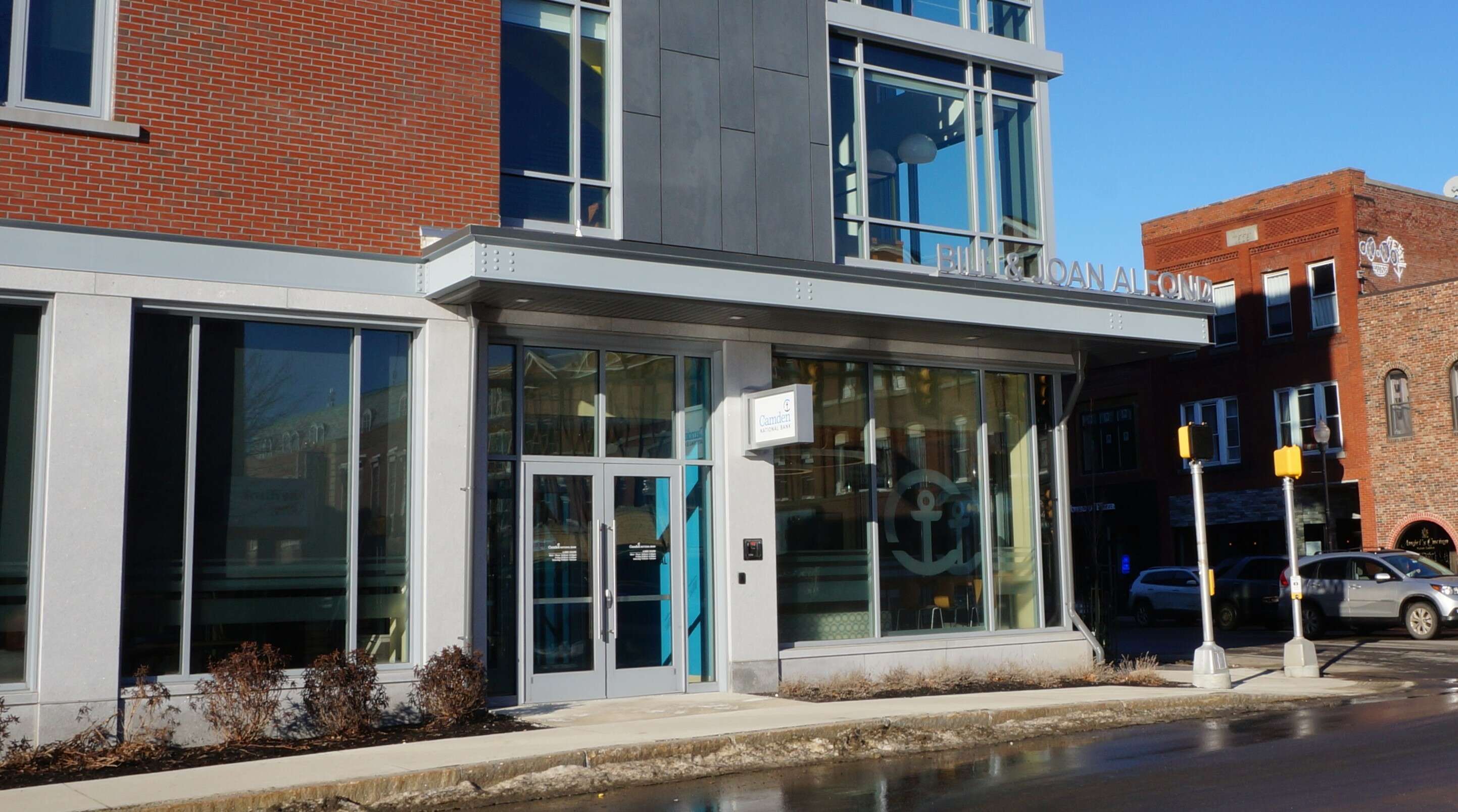
Processing Your Payment
Please do not leave this page until complete. This can take a few moments.
- News
-
Editions
-
- Lists
-
Viewpoints
-
Our Events
-
Event Info
- Women's Leadership Forum 2025
- On the Road with Mainebiz in Bethel
- Health Care Forum 2025
- On The Road with Mainebiz in Greenville
- On The Road with Mainebiz in Waterville
- Small Business Forum 2025
- Outstanding Women in Business Reception 2025
- On The Road with Mainebiz in Bath
- 60 Ideas in 60 Minutes Portland 2025
- 40 Under 40 Awards Reception 2025
- On The Road with Mainebiz in Lewiston / Auburn
- 60 Ideas in 60 Minutes Bangor 2025
Award Honorees
- 2025 Business Leaders of the Year
- 2024 Women to Watch Honorees
- 2024 Business Leaders of the Year
- 2023 NextUp: 40 Under 40 Honorees
- 2023 Women to Watch Honorees
- 2023 Business Leaders of the Year
- 2022 NextUp: 40 Under 40 Honorees
- 2022 Women to Watch Honorees
- 2022 Business Leaders of the Year
-
-
Calendar
-
Biz Marketplace
- News
-
Editions
View Digital Editions
Biweekly Issues
- April 21, 2025 Edition
- April 7, 2025
- March 24, 2025
- March 10, 2025
- Feb. 24, 2025
- Feb. 10, 2025
- + More
Special Editions
- Lists
- Viewpoints
-
Our Events
Event Info
- View all Events
- Women's Leadership Forum 2025
- On the Road with Mainebiz in Bethel
- Health Care Forum 2025
- On The Road with Mainebiz in Greenville
- On The Road with Mainebiz in Waterville
- + More
Award Honorees
- 2025 Business Leaders of the Year
- 2024 Women to Watch Honorees
- 2024 Business Leaders of the Year
- 2023 NextUp: 40 Under 40 Honorees
- 2023 Women to Watch Honorees
- 2023 Business Leaders of the Year
- + More
- 2022 NextUp: 40 Under 40 Honorees
- 2022 Women to Watch Honorees
- 2022 Business Leaders of the Year
- Nomination Forms
- Calendar
- Biz Marketplace
Colby focusing on ongoing downtown development projects
Across the street from the construction site that will become Colby College's Lockwood Hotel is a century-old vacant block of brick buildings quietly waiting for its moment in the spotlight.
The 24,000-square-foot block was among the college's first real estate acquisitions downtown, and while other, bigger projects have been the focus, those buildings are also key to the college's plans.
The four-story brick block at 14-20 Main St. will shortly be surrounded by new development. It's across Main Street from the Lockwood Hotel site, and across Spring from the Lockwood Mill, which North River Co. bought this summer and plans to develop into residential and commercial space.
"We know we need to get that going," Colby President David Greene told Mainebiz Monday. "It's going to be really important when we open that beautiful hotel. That's going to be the gateway to the commercial Main Street area to be we want it to be absolutely terrific."
Adding to the appeal of the site, the five-way intersection the buildings are at the corner of will be reconfigured as part of a $9 million downtown street upgrade. The street reconstruction will make the area more pedestrian and car friendly, and the property more accessible.
Between 2014 and 2018, Colby invested $33 million in downtown building acquisitions and development, including the block at 14-20 Main St. and four other buildings. An economic impact study released this week by the college said the five years of invesment has increased tax payments to the city, added employment and served as a catalyst for more development.
The $33 million doesn't include the $25.5 million Bill and Joan Alfond Commons at 150 Main St. which opened in August 2018 — the study only covers what was done by the end of June 2018.
It also doesn't include the $20 million 53-room Lockwood Hotel that's under construction across the street from 14-20 Main and expected to open next year, or the $20 million arts center Colby is developing at 93 Main St. in partnership with Waterville Creates!.
Many possibilities
Of the five buildings the college bought from 2015-2017, three have been torn down to make room for new projects and one, 173 Main St., has undergone a $5 million redevelopment and now houses Portland Pie Co., office and business incubator space.
The block at 14-20 Main St., actually two or three connected buildings, is the only property left of those acquisions that is still in flux. Colby bought the property in August 2015 for $274,900 — $174,900 for 14 Main St. and $100,000 for 20 Main St.
Greene said that since the purchase "we've probably looked at three or four different models."One would be more arts space for downtown, "which would be pretty exciting," he said.
Residential space is also being considered, with a mix of office and retail. "There's potentially demand for that as well," he said. "We've talked to developers about those."
When Colby bought the property, no one was sure whether the vacant four-story brick buildings were salvageable. A fire in 2013 had damaged part of the block, which had apartments, a tattoo shop and a pawn shop. A fire in the 1980s had damaged another long-vacant part, which once housed Waterville Hardware and had been vacant for years.
But the college found that the buildings were in good enough shape for reuse, and renovations have been underway for the past couple years. About 19,000 square feet of the buildings' 24,000 total is considered usuable space, according to the college.

More retail on the way
The Camden National Bank, at 33 Main St., which Colby bought last year, was torn down to make room for the Lockwood Hotel. Also torn down was 9 Main St., another of the first buildings Colby bought downtown, in June 2015. The former Levine's department store site, it is also part of the Lockwood Hotel development.
The other June 2015 buy, 173 Main St., was redeveloped by Colby for $5 million. It has office space on the upper floors, including technology incubator space, and two retail units on the ground floor. Portland Pie Co. moved into 3,500 square feet of space in 2017.
Greene said that Colby is close to signing a tenant for the remaining 2,500 square feet, the corner space on Maine and Temple. Greene said they're "in the final stages of a conversation with a retailer that will be fantastic for Waterville."
Retail space in the Alfond Commons, across the street, is also close to being filled, Greene said. Camden National Bank moved into 3,500 square feet at Alfond Commons in August 2018, when Colby bought the bank building, but there was another 3,875 square feet available.
The potential tenant "will be a destination retailer," Greene said. "This will be a really terrific thing."
He said that Colby's developers have been been "working on architectural designs with them and all the things that need to be done."
Colby is also partnering with Waterville Creates!, a nonprofit umbrella organization for several area arts and cultural organizations, on a $20 million arts center in the Center building at 93 Main St.
One big impact of Colby's investments in downtown Waterville have been in property taxes assessed — the amount rose 411% between 2014, when it was $17.9 million, and 2018, when it was $91.6 million.
"We've said from the beginning we wouldn't take property off the tax rolls, and we've done more than that," he said.














0 Comments